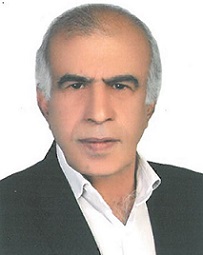C reative
Particle
Higgs
CPH Theory is based on Generalized light velocity from energy into mass.
CPH Theory in Journals
|
Lecture on Women in Space
|
|
Lecture on Women in Space One of the first American women to undergo astronaut testing, and the author of a book about the "Mercury 13" program
March 31, 2008 Wally Funk, one of the first American women to undergo astronaut testing, and Martha Ackmann, author of a book about the short-lived "Mercury 13" program in the early 1960s, will give a joint talk, "The Mercury 13: Women and the Dream of Space Flight," at 7 p.m., Tuesday, April 8, in Kresge Hall, Ford Center for the Fine Arts, Knox College, Galesburg, Illinois. The talk is free and open to the public. Funk and Ackmann are visiting Knox as part of a program to encourage more women to undertake careers in physics and computer science, sponsored by a grant from the Clare Boothe Luce Foundation. While on campus, they also will meet with students in an interdisciplinary course, Science and the Social Construction of Race and Gender. The course is using Ackmann's critically acclaimed book, "The Mercury 13: The True Story of Thirteen American Women and the Dream of Space Flight," as one of its texts. "This year marks the 25th anniversary of the first American woman in space, Sally Ride, who flew on the Space Shuttle in 1983," said Mary Crawford, associate professor of chemistry and one of the professors teaching the course. "Martha Ackmann shows that more than 20 years before 1983, Wally Funk and a dozen other American women were ready to go into space, but were denied the opportunity." The youngest of the 13 women who secretly underwent the rigorous astronaut testing program in 1961, Funk is a highly accomplished flight instructor. She was the first woman to complete the Federal Aviation Administration's training for General Aviation Operations Inspector, the first woman specialist in the FAA's Systems Worthiness Analysis Program, and the first woman Air Safety Investigator with the National Transportation Safety Board. In 2006 she gave the commencement address and was awarded an honorary degree by her alma mater, Stephens College. At Knox, Ackmann will give the public lecture, and Funk will join her for the question and answer session. The "Mercury 13," as the women were called, were all experienced pilots and, between January and August 1961, passed the same tests as the men in NASA's astronaut testing program, who had been dubbed the "Mercury 7." But before the women could undergo the flight simulation phase of testing in the fall of 1961, "NASA pulled the plug and abruptly stopped the secret project," Ackmann wrote on her web site. "Some said the women had scored too well on the grueling tests and posed a threat to the astronaut program. Others feared that if women were allowed to become astronauts, they might demand other jobs as well." Two years later, the Soviet Union sent the first woman into space. The Mercury 13 "sometimes sacrificed jobs and marriages for a chance to participate in America's space race against the Soviet Union," Ackmann wrote. "Their struggle paved the way for today's women astronauts and helped open doors for all women in jobs that some see as unconventional, improper or dangerous." Ackmann is senior lecturer in gender studies at Mount Holyoke College. "The Mercury 13" was selected as one of the top nonfiction books of 2004 by BookMarks magazine and the Boston Globe. The book also won the Amelia Earhart Medal and the media prize from the American Institute of Aeronautics and Astronautics. In addition to the Clare Booth Luce grant, other co-sponsors are the Office of the Dean of the College, the Cultural Events Committee, and student organizations including Physics Club, Chemistry Club, and Students Against Sexism in Society. Founded in 1837, Knox is a national liberal arts college in Galesburg, Illinois, with students from 45 states and 44 nations. Knox's "Old Main" is a National Historic Landmark and the only building remaining from the 1858 Lincoln-Douglas debates.
1 2 3 4 5 6 7 8 9 10 Newest articles
|
|
Sub quantum space and interactions from photon to fermions and bosons |
Interesting articles
Since 1962 I doubted on Newton's laws. I did not accept the infinitive speed and I found un-vivid the laws of gravity and time.
I learned the Einstein's Relativity, thus I found some answers for my questions. But, I had another doubt of Infinitive Mass-Energy. And I wanted to know why light has stable speed?
